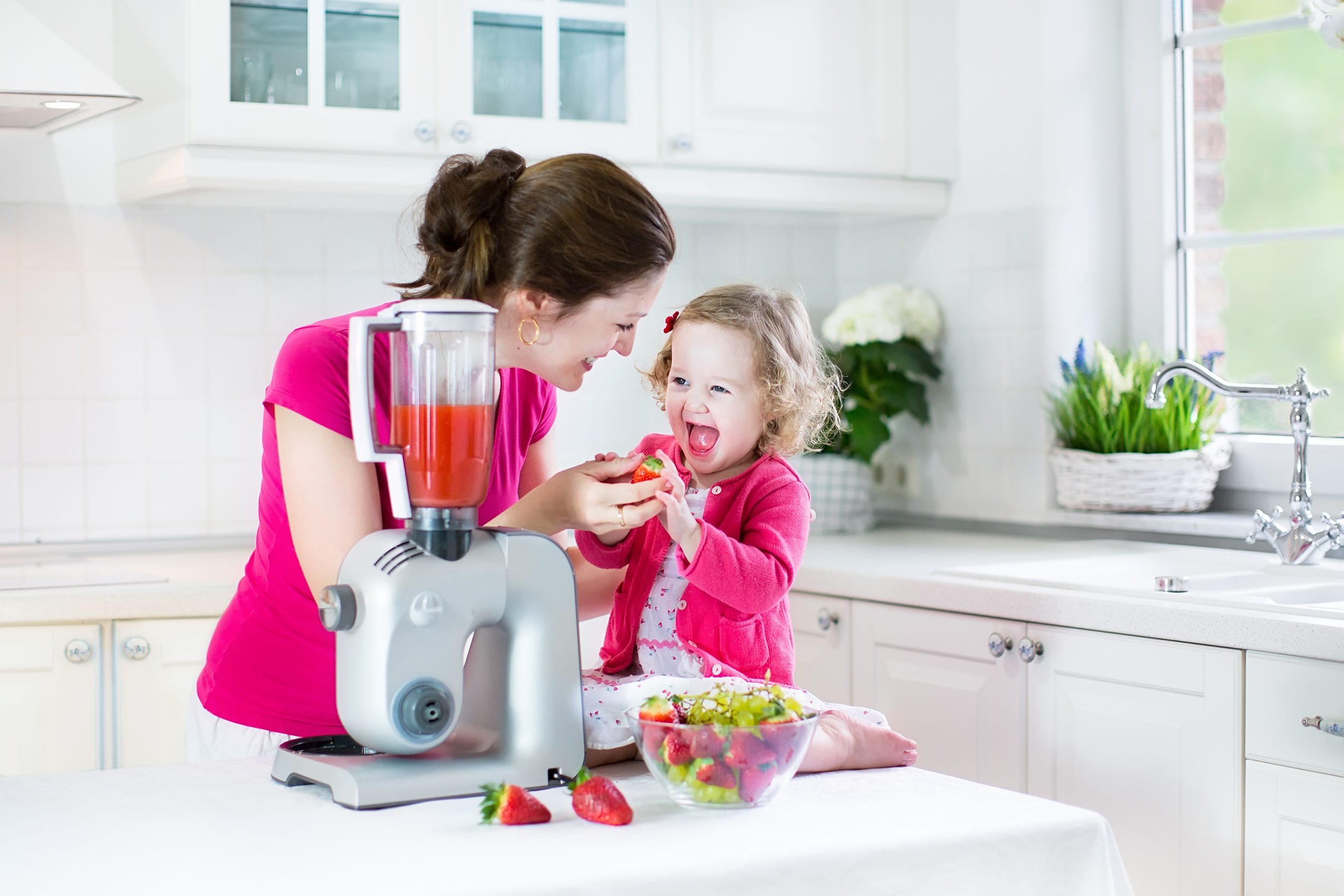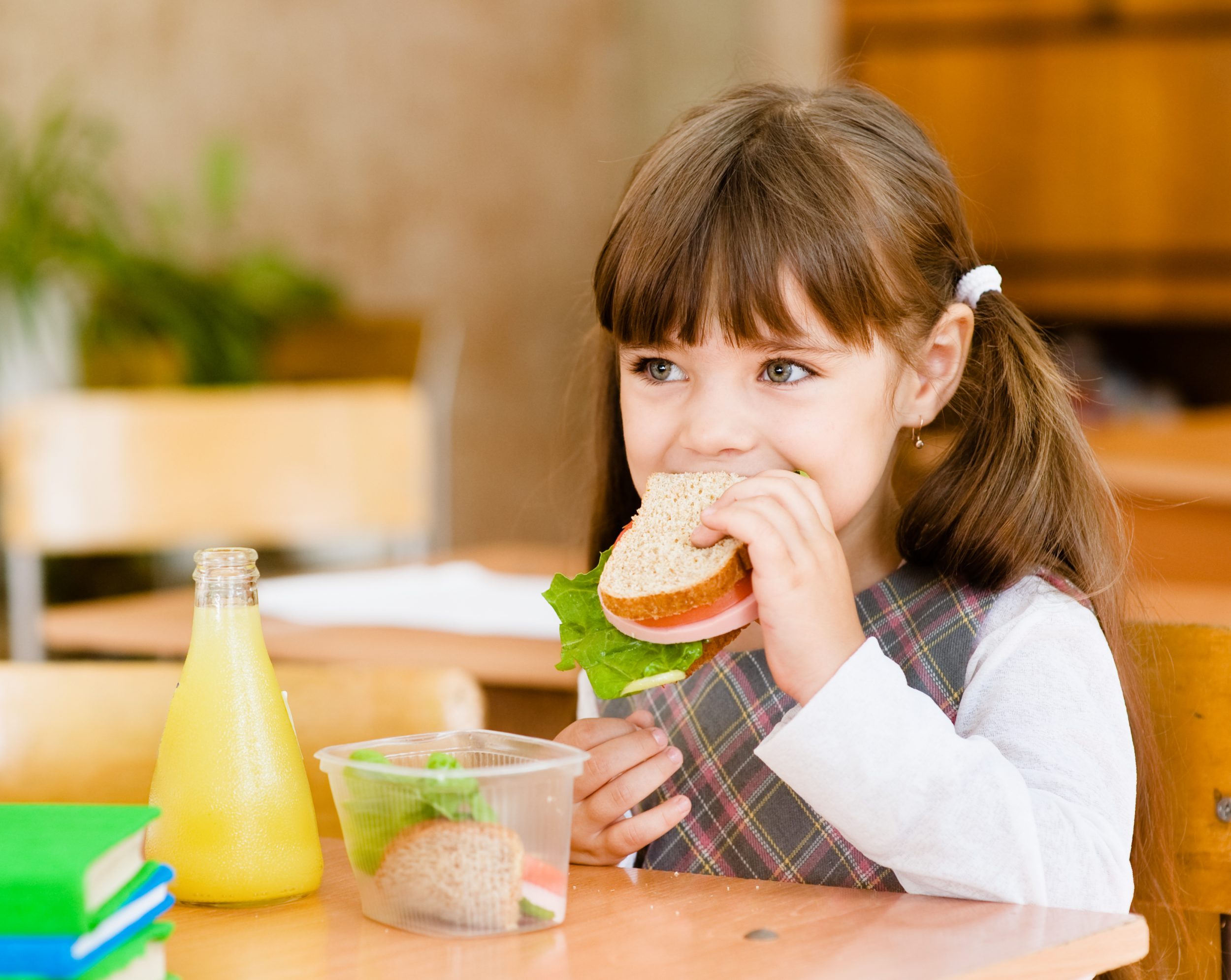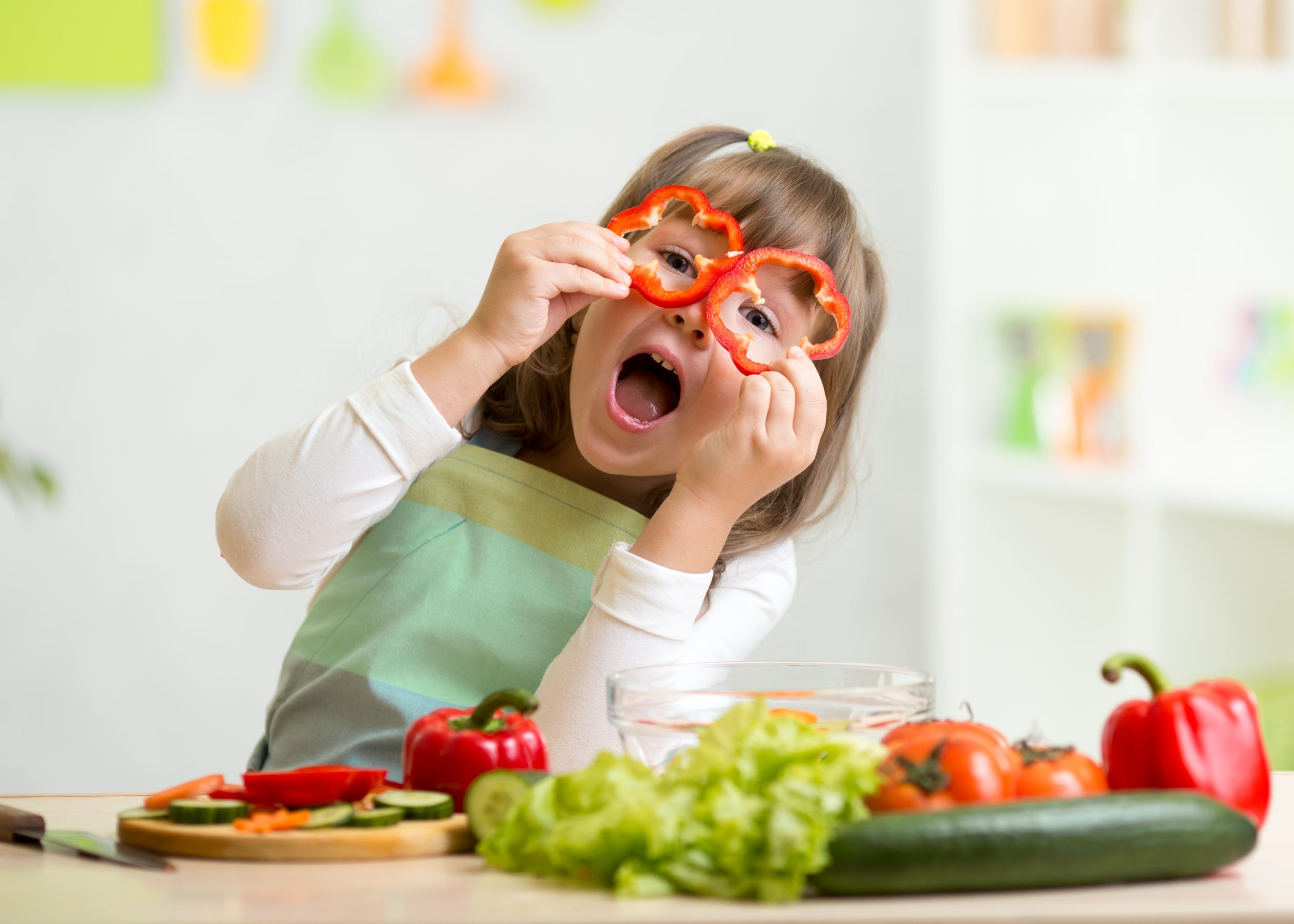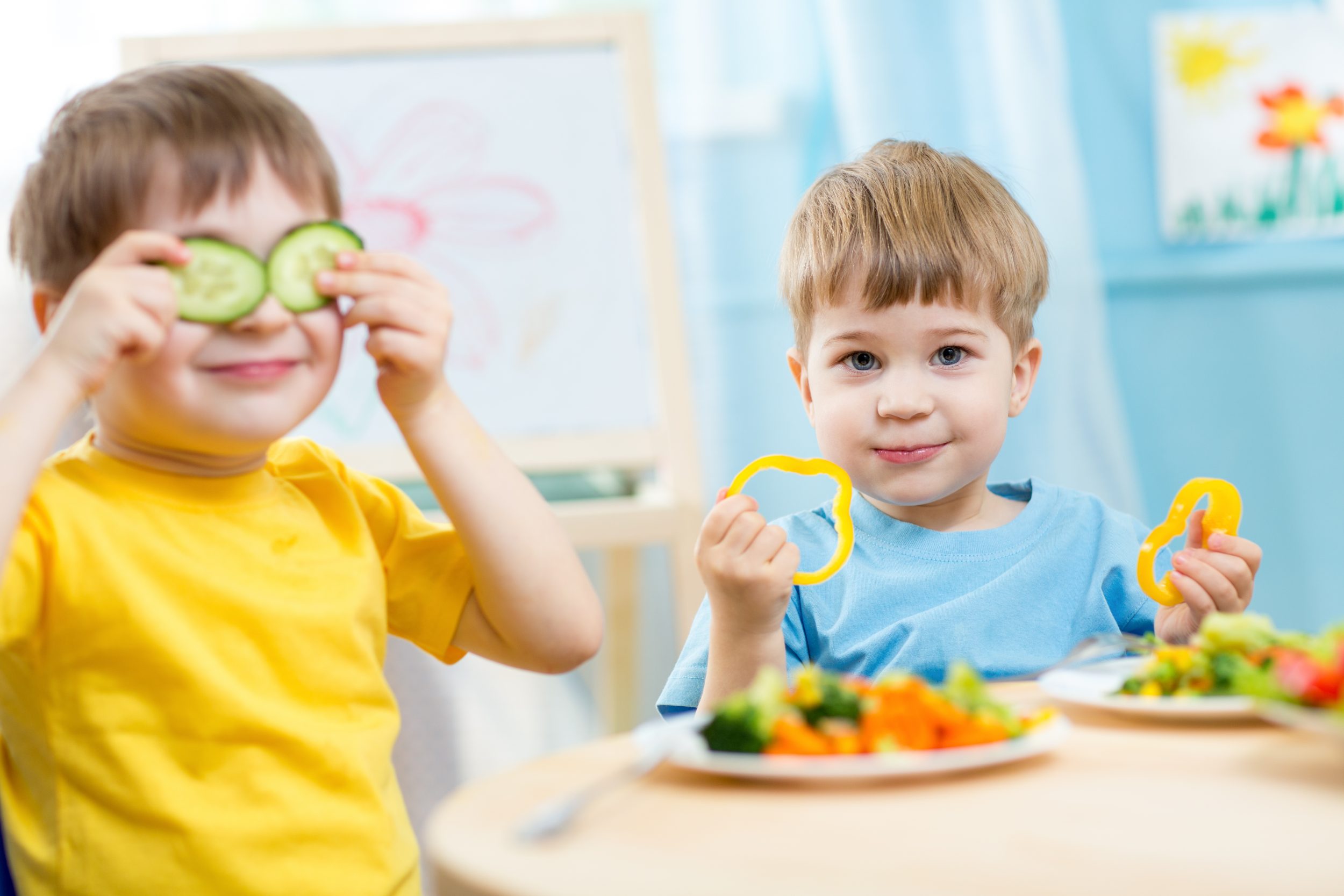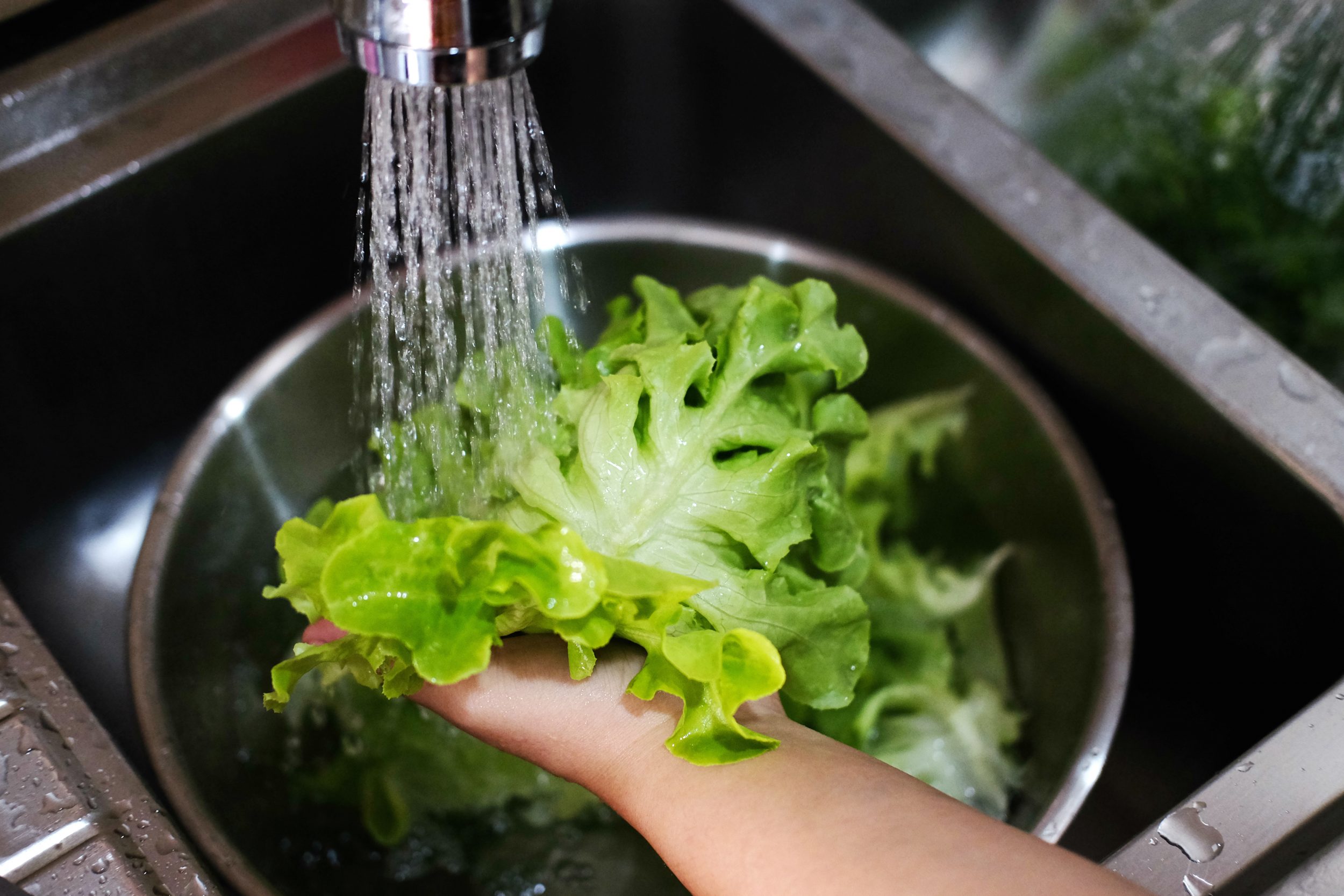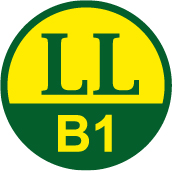
Plenty of water
Children need to drink regularly. It depends on the day how much they need. For example: Is it a hot day? How active is your child? Toddlers should drink 6 to 7 small glasses every day, preferably water. 1 small glass is about 125 millilitres.
Drinking water is very important. Juice should only be the exception. Your child should not have drinks with lots of sugar in them. For example, lemonade, fruit nectar, syrup, or sweetened tea. These drinks can lead to tooth decay.
Children cannot have drinks with alcohol or caffeine. Also, your child should not have bubble tea. Bubble tea contains caffeine and lots of sugar. It also contains small starch balls filled with liquid. Young children can choke on these small balls.
Your child should drink from suitable containers. For example, from cups, mugs, or small glasses. Drinking sugary drinks from a teat bottle can lead to tooth decay.
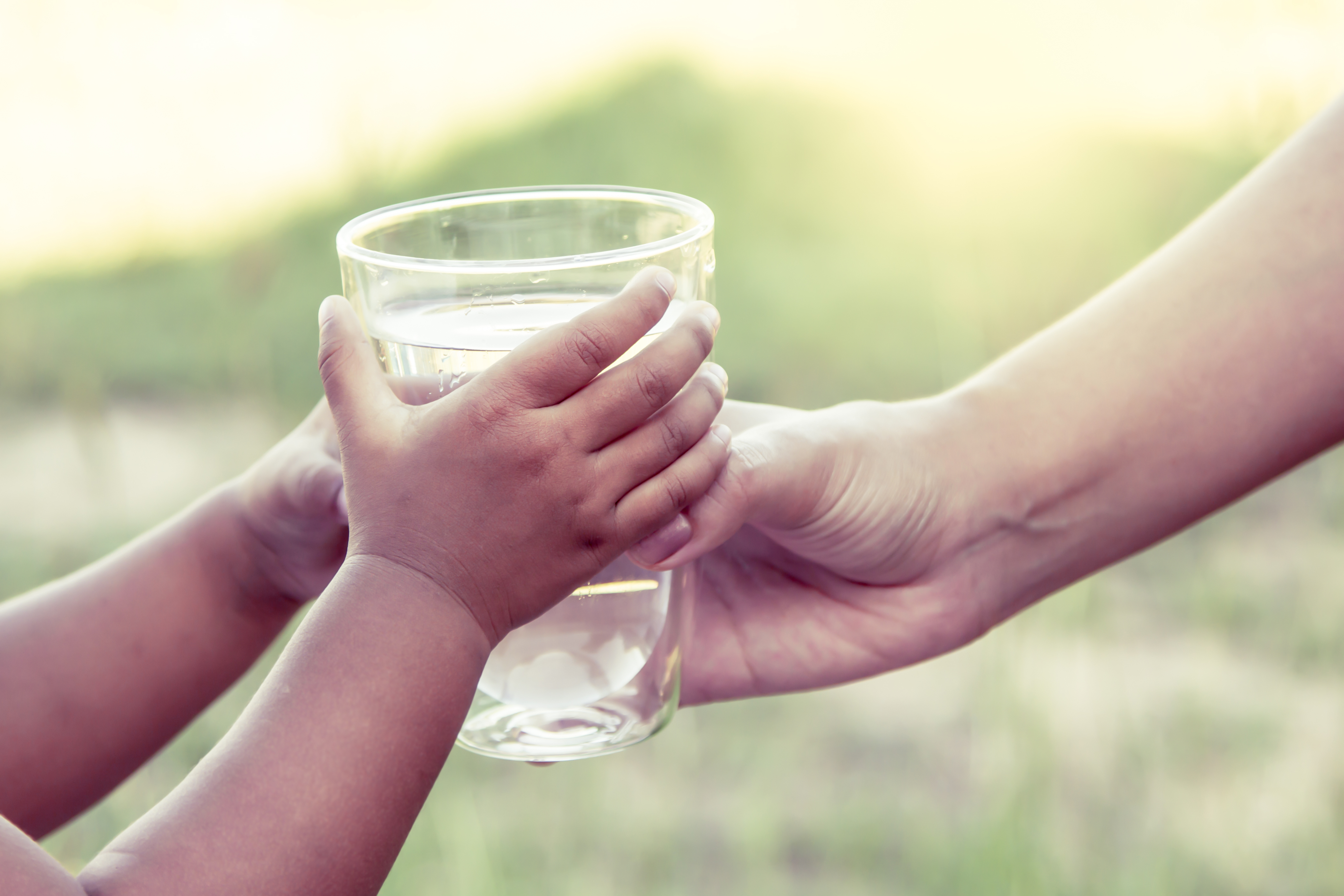
Vegetables, pulses, and fruit: 5 servings per day
Every meal should include fruit and vegetables. It can be cooked or raw. Young children should eat many fruits, vegetables, and pulses, like beans and peas. Children should eat 3 servings of vegetables and pulses and 2 servings of fruit every day. Usually, one serving is the amount that fits in a child's hand. Fruit and vegetables that were regionally grown and that are in season are best.
Examples for 1 serving:
- 1 handful fruits or 2 handfuls of chopped fruit or berries
- 2 handfuls of cooked vegetables
- 1 handful of raw vegetables or 2 handfuls of chopped raw vegetables of raw vegetables
- 2 handfuls salad
- 2 handfuls of cooked pulses
Vegetables, pulses and fruit contain vitamins, minerals and fibre. These are important protective substances. Pulses also contain a lot of protein. For example in lentils, peas and beans.
- Plan fixed meals that include fruit and vegetables.
- Cut fruits and vegetables into small pieces. Put them where your child can see and reach them.
- Children like variety. Offer different types of fruit and vegetables.
- Also offer raw vegetables.
- For cooking, you can also use frozen vegetables.
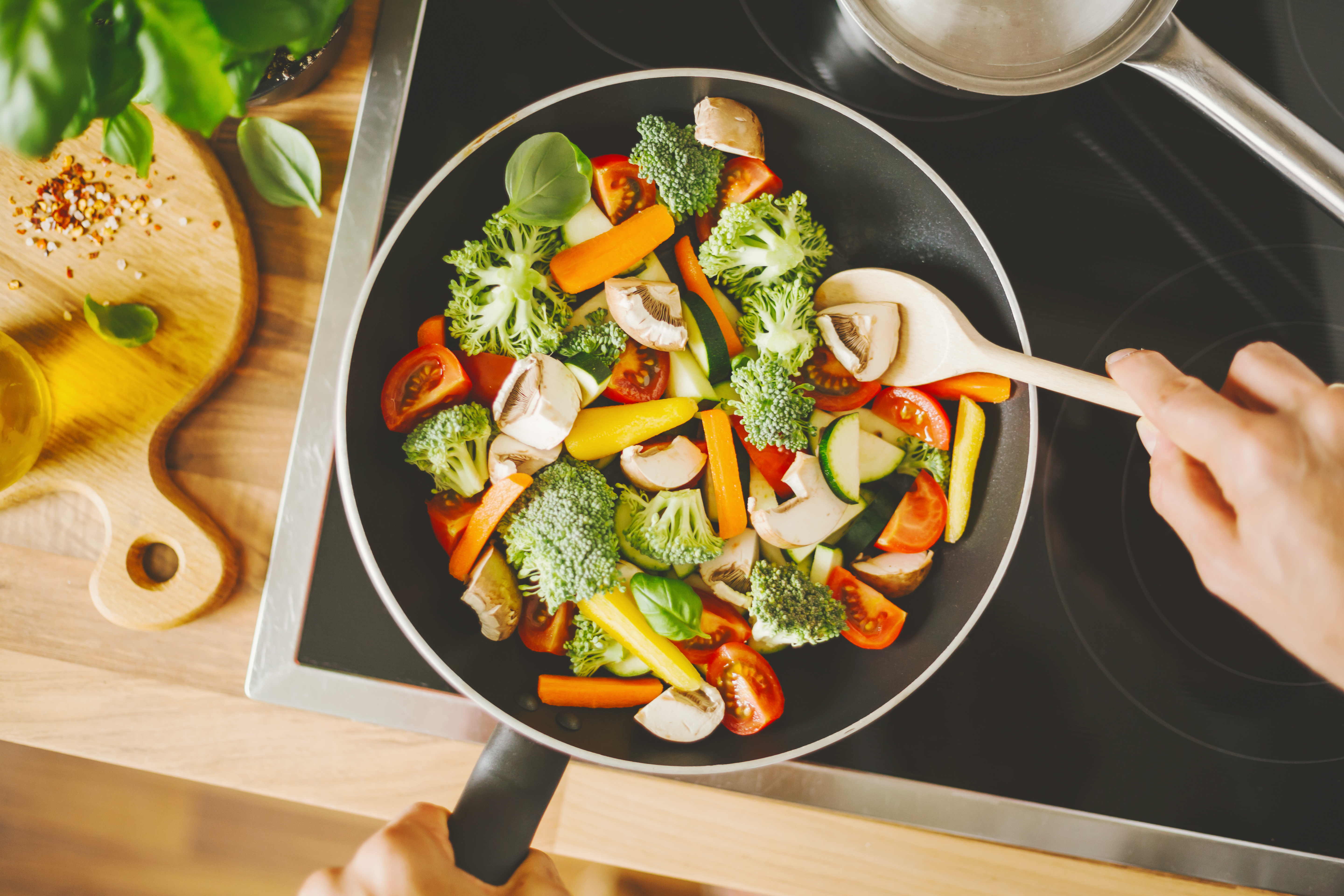
Lots of cereals and potatoes
Cereals and potatoes have a lot of carbohydrates. Small children should eat 5 servings per day.
- 1 to one and a half palms of bread
- 2 handfuls of muesli or wholemeal cereal flakes
- 3 fists of cooked pasta
- 2 fists of of cooked rice or cooked cereal
- 2 fists of of boiled potatoes
Wholemeal products contain a lot of fibre, vitamins, and minerals. This is why they are important for the diet of small children. For example, use pasta made from wholemeal flour instead of pasta made from white flour. Or use wholemeal rice instead of white rice. You can also mix wholemeal pasta with white pasta. This makes it easier to switch to wholemeal products. Grains and cereals like millet, green spelt, polenta, buckwheat, or oat flakes also are great ingredients.
Small children should not eat bread that has whole grains in it. For example, sunflower seeds or nuts. Small children could choke on them.
Muesli is a good breakfast. But muesli from the store often contains a lot of sugar. Prepare the muesli yourself or check the label and make sure that there is little sugar in it.
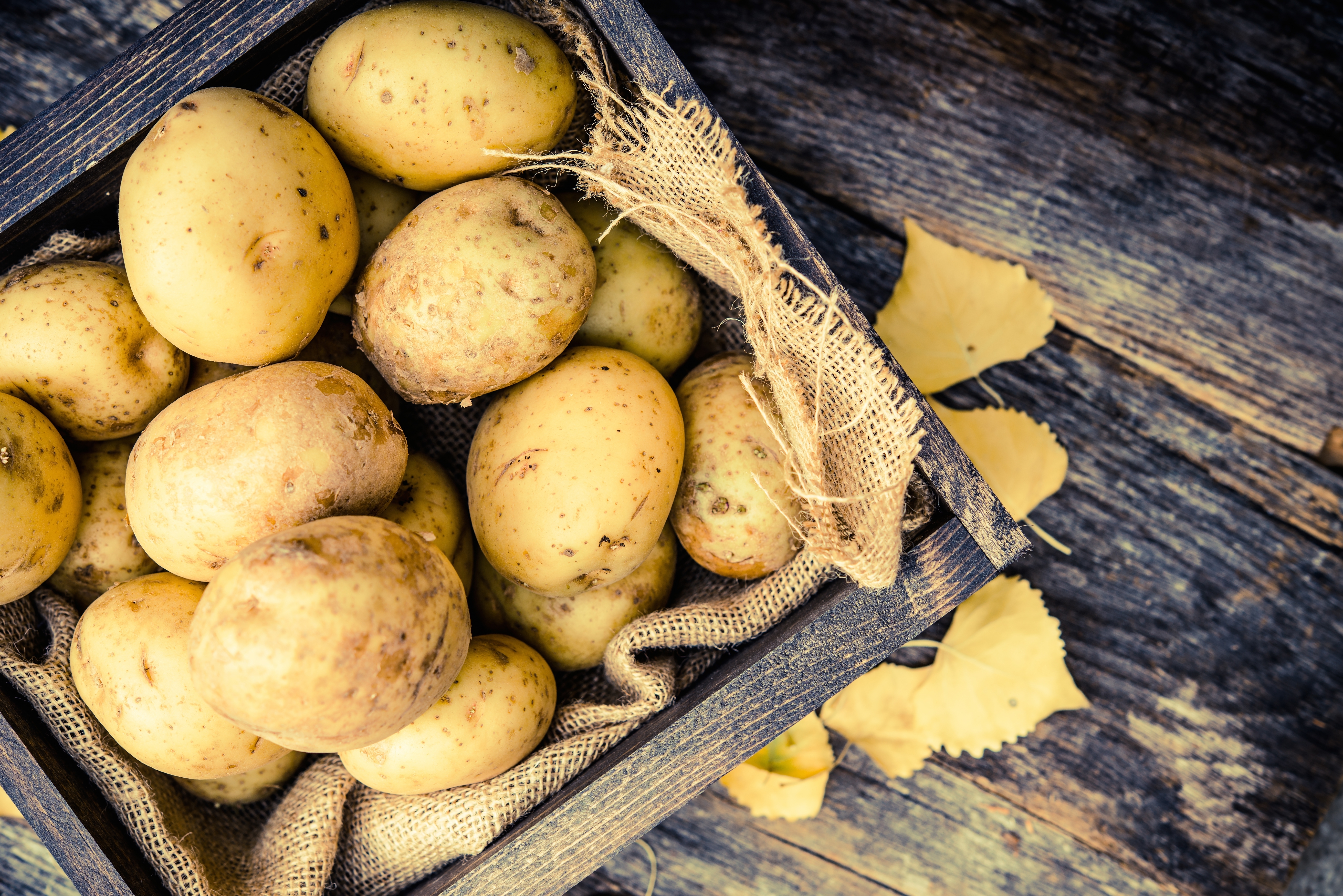
Only use pasteurised milk
Milk is very nutritious. That is why milk counts as a food and not a drink. If your child has not had cow's milk in the first year of life, start slowly. Your child can also have yoghurt, buttermilk, sour milk, or curd cheese. You can mix these products with fresh fruit, for example.
Whipped cream, sour cream, crème fraîche, dessert creams, fruit yoghurts or flans contain too much fat. They often also contain a lot of sugar. They should only be the exception.
Milk and dairy products must always be pasteurised. Pasteurised means that the milk was heated to kill the bacteria in it. Raw milk and unpasteurised dairy products can make your child ill.
Examples for 1 serving:
- 1/2 glass of milk or buttermilk (125 millilitres)
- 1/2 cup of yoghurt (100 grams)
- 1 children´s fist of curd cheese, cottage cheese or spreadable cheese
- 1 slice of cheese (20 grams)
Young children should have 3 servings of milk and dairy products a day. The best are:
- 2 servings of "white products". These are, for example, milk, yoghurt, buttermilk, or cottage cheese. If possible, you should not sweeten these products.
- 1 serving of "yellow product". This is cheese.
Children do not need special children's milk. This kind of milk does not contain any more nutrients than "normal" milk.
Children under the age of 2 should not drink low-fat milk. Only give your child low-fat products when they are over 2 years old.
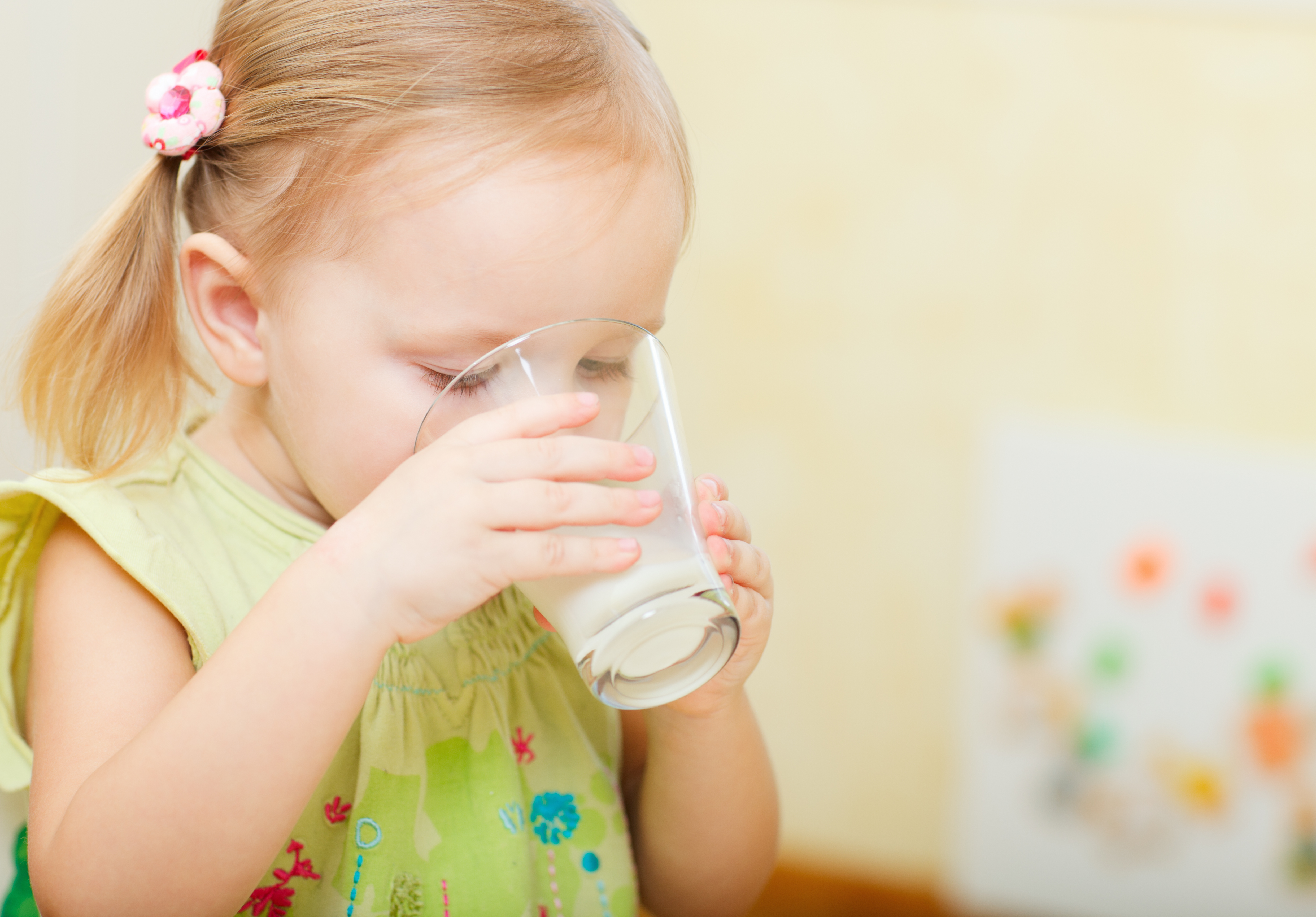
Fish
Your child should eat fish. Fish gives your child iodine, vitamin D, protein, and omega-3 fatty acids. Give your child 1 to 2 servings of fish per week. One serving is about the amount that fits in a child's hand. That is about 50 grams. If possible, buy
- regional fish such as char or trout.
- sea fish with a lot of fat such as salmon, herring, or mackerel. If you do not want to give your child sea fish, they should eat 1 teaspoon of rapeseed oil per day. For example, in a salad. You can also use rapeseed oil for cooking.
Tips:
No more than 3 servings of meat and sausage per week
Give your child a maximum of 3 servings of meat or sausage per week. One serving is about the amount that fits in a child's hand. That is about 50 grams.
Meat contains iron, lots of zinc and B vitamins. It also contains high-quality protein. But meat and sausages contain a lot of salt. Children under the age of 5 should not eat raw meat or raw meat products. For example, minced meat, salami, Landjäger, Kantwurst, Mettwurst, raw ham, smoked meat, or bacon.
Eggs must be cooked
Eggs contain many nutrients: protein, vitamins, and minerals. Small children should eat 1 to 2 eggs per week. But do not forget to count the eggs that are processed in food. For example, in pasta, cakes or pancakes.
Use good fats and oils
Young children can eat up to 25 grams of vegetable oils and grated nuts per day. This is about 5 teaspoons in total. 3 teaspoons of these should be vegetable oils.
With fats and oils, it is especially important to have good quality. Use healthy vegetable oils such as rapeseed oil, olive oil, walnut oil, soya oil, linseed oil, sesame oil and grape seed oil. Only use small amounts of spreadable fats, baking fats, and frying fats. These are, for example, butter, margarine, or lard.
Fatty, sweet and savoury foods should only be eaten rarely
Your child should only eat small amounts of foods that contain a lot of fat, sugar or salt. It is best for your child to not eat such foods every day. They should only have 1 small serving at most. This applies to sweets, pastries, fatty, sweet or salty snacks, and sugary drinks. For example, soft drinks and fruit nectar.

